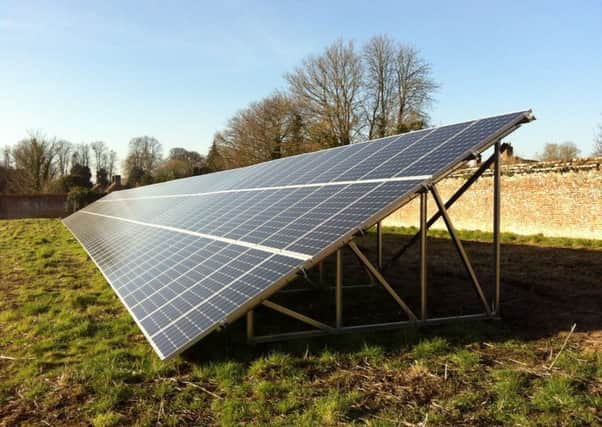Column: Shedding light on the UK's energy policy


As of March next year, the government will stop accepting applicants for financial support towards installing Solar Panels.
These payments were already slashed in 2016, suggesting the current government’s commitment to affordable green energy is less ardent than previously claimed – but what does this mean in real terms?
Advertisement
Hide AdAdvertisement
Hide AdSince 2010 government supported ‘Feed-in Tariffs’ have helped more than 600,000 home owners install solar panels, cutting their yearly energy costs and even earning small pay outs for unused electricity returned to the grid via ‘Export Tariffs’.


For a large number of Crawley residents, this has resulted in many a sunny year. Now that the scheme is ending, what, if anything, will replace this popular program of support for environmentally minded households? The Government consultation on what will follow was due over 18 months ago, but the only news to have reached the public, in November last year, is that it will not be considering a replacement scheme until 2025.
The good news is that there are alternatives available – including tax support for renewable energy installations, interest-free or heavily subsidised loans, and the continuation of the export tariff, allowing people to sell electricity back to the grid.
These schemes could save the average household many hundreds of pounds every year, and even deliver a small income to some, all the while supporting a growing British industry and helping save the environment. With such uncertainty about the future, though, there will doubtless be many who decide to install Solar Photovoltaics before the withdrawal of government subsidies next March, providing them with a guaranteed income until 2039 and, with proper maintenance, a source of power for many years after that.
Advertisement
Hide AdAdvertisement
Hide AdSolar panels, as well as providing a cheap and reliable source of electricity, can be considered one of the easiest – and most effective – ways that homeowners can help the planet. This global trend of installing solar panels into individual homes has been pioneered by South African-American entrepreneur and space-travel minded billionaire Elon Musk. Only this year, Musk agreed to build 50,000 solar energy units for private homes in South Australia with power being fed back to the State, meaning a reduction in blackouts and, theoretically, lower energy costs.
The Government’s decision flies in the face of advice and words of caution from multiple public bodies, including the Committee on Climate Change and the National Infrastructure Commission.
Both these bodies, and many others, have emphasised that renewable energy sources, and particularly solar, due to its ease of installation and maintenance, are our best bet for cheap, green energy. With global engagement, and the slow but steady increase in popularity of solar over wind or tidal energies, the UK Government is demonstrating the kind of regressive attitude that will see it lag behind the world’s leading players in this area.
__